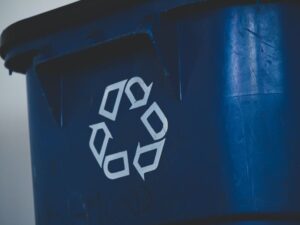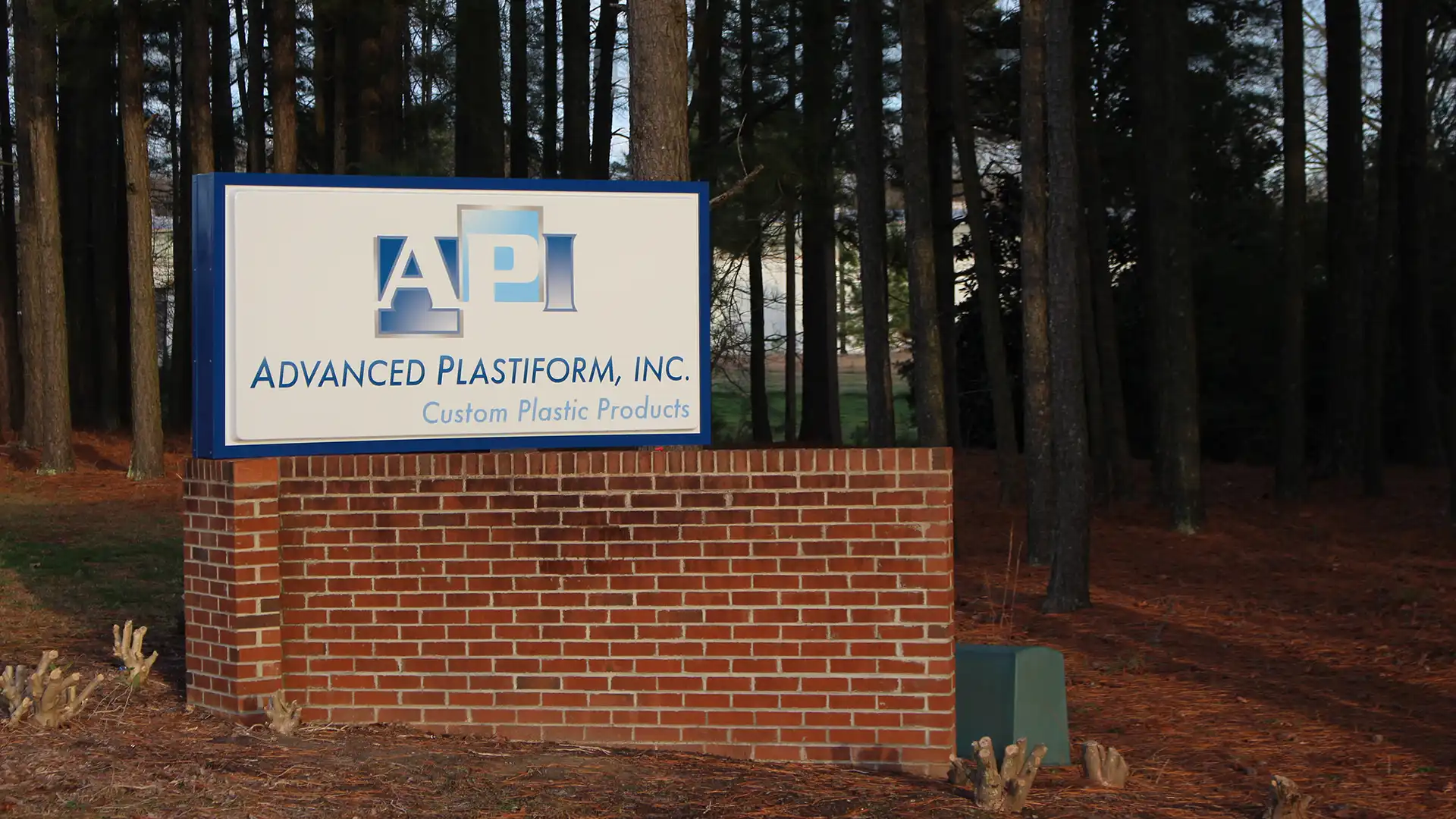Choosing the right thermoplastic is key to successfully thermoforming a durable, long-lasting component that behaves…
It is more and more important to improve sustainability in a world where there is so much waste. Recycling plays a primary part in the effort for sustainability. At Advanced Plastiform Inc., our thermoforming company in North Carolina, we understand the need for reducing waste in our world and are working diligently to improve sustainability with thermoplastic recycling. In this article, we explore what sustainability is, why sustainability is important, the role of recycling in sustainability, and how API assists with thermoplastic recycling.
What Sustainability Is
Sustainability has been defined as the ability to exist and develop without depleting natural resources for the future. Sustainable development is a development that meets the needs of the present without compromising the ability of future generations to meet their own needs. If we are to assume that our resources are finite, then it’s logical to think that those resources should be used conservatively and carefully so there are enough for future generations, without decreasing the present quality of life.
The Importance of Sustainability
We live in a world where everything is thrown away–from plastic containers to appliances. Items like microwaves, computers, and televisions are tossed away at a blinding pace as we attempt to keep up with the next, newest thing. Our purchases require packaging that becomes pounds and pounds of trash to be recycled. As a result of this culture, the importance of sustainability is undeniable. The sustainability of our present needs without compromising the needs of future generations is more and more critical.
Recycling Defined
Recycling is the process of using materials that have already been used. In the recycling process, waste materials are collected and converted into usable and new materials. What would otherwise be waste, can either be converted into raw material for making new products or get transformed directly into a new product.
The main benefit of recycling is reusing materials so there is no need to harvest more natural resources from the environment. Additionally, recycling is a method of keeping the environment clean for people and wildlife, reducing waste that goes into landfills, reducing energy usage, and minimizing the environmental impact of producing new products by incorporating existing materials that can be reused and repurposed.
The Role of Recycling in Sustainability
A large part of sustainability involves recycling in order to reuse materials to create new products. Recycling is one of the most effective ways we can preserve our planet; without it, we use more energy and deplete our resources.
Recycling and reusing wastes have a significant part in sustainability because they reduce the negative impact our activities have on the environment.
Recycling is necessary because:
The amount of waste transferred to landfills and incinerators is reduced.
- The finite natural resources are kept, by saving trees and forests and decreasing the need for extraction of new metal ores.
- It protects the ecosystem and wildlife.
- Macroeconomic goals are sustained by keeping the source of materials in domestic markets.
- It prevents pollution caused by extracting new raw materials.
- It cuts carbon emissions.
- It saves energy. For example, studies have shown that making paper from pulped recycled paper uses 40% less energy than making it from virgin wood fibers.
- It helps create jobs in the recycling and manufacturing industries.
Recycling Thermoplastics
Thermoplastics, by their very nature, are easy to recycle. Thermoplastics include acrylics, nylon, and polyethylene (polythene). As they are heated, they can be shaped into any form you like, which also makes them easy to recycle. The polymers found in thermoplastics are strong, but have weak bonds, allowing them to be highly recyclable and reused indefinitely. The polymer chain for thermoplastics does not degrade when melted down. Therefore, thermoplastics can be recycled indefinitely until the polymers are broken down to the point that the material loses structural integrity.
The Difference Between Thermoplastics and Thermosets
There are two main categories of plastics–thermoplastics and thermosets. They are different in the way their polymers are linked (i.e., the strength of their chemical bonds), which makes them different in their ability to be recycled. Thermosets have permanent chemical bonds that cause them to retain their shape regardless of whether they are reheated. As stated above, thermoplastics have weaker chemical bonds that allow them to be heated and remolded.
Recycling Thermoplastics Improves Sustainability
Given our waste crisis and the need to conserve natural resources, recycling is critically important. Anything we can reuse, we should. At Advanced Plastiform, we recognize the need to recycle and our intention is to incorporate recycling into our normal course of business. Because thermoplastics can be easily recycled, there is no reason not to do so. We know that recycling these materials wherever possible improves sustainability and will ultimately enable our future generations to have the same quality of life we have today. Whether we are creating custom plastics for cars, trucks, and other vehicles through injection molding or using thermoforming to create a product, we are looking for ways to recycle and reuse materials.
Get a Quote for Custom Plastic ManufacturingToday
Advanced Plastiform, Inc. offers high-quality, durable plastics at a low per-unit cost and a fast lead time. Since 1988, we have worked with all types of industries across the Southeast and Mid-Atlantic states, North Carolina, South Carolina, Pennsylvania, Maryland, Tennessee, Georgia, and Virginia. We are dedicated to offering high-quality thermoforming and injection molding services, as well as improving our customer’s experiences through value-added services.

 The amount of waste transferred to landfills and incinerators is reduced.
The amount of waste transferred to landfills and incinerators is reduced.